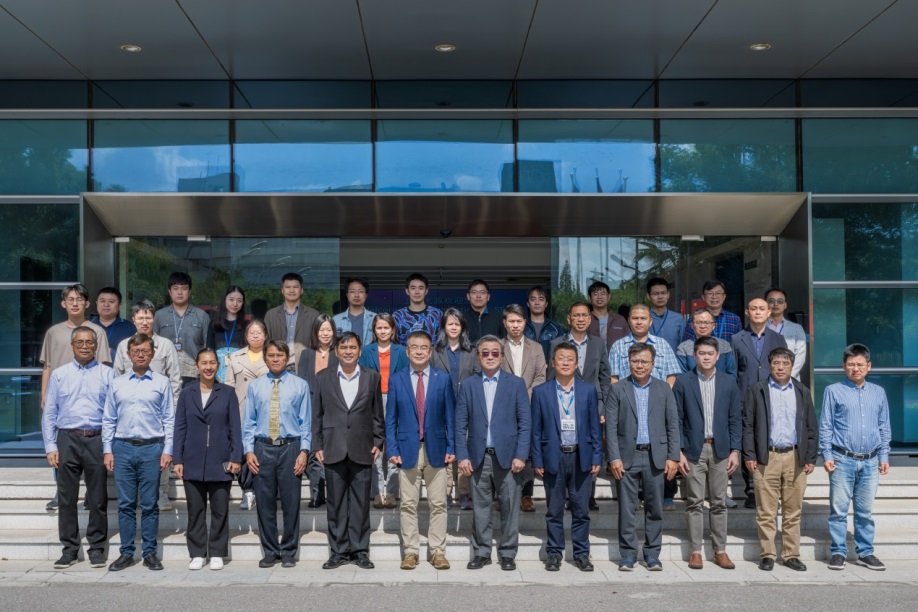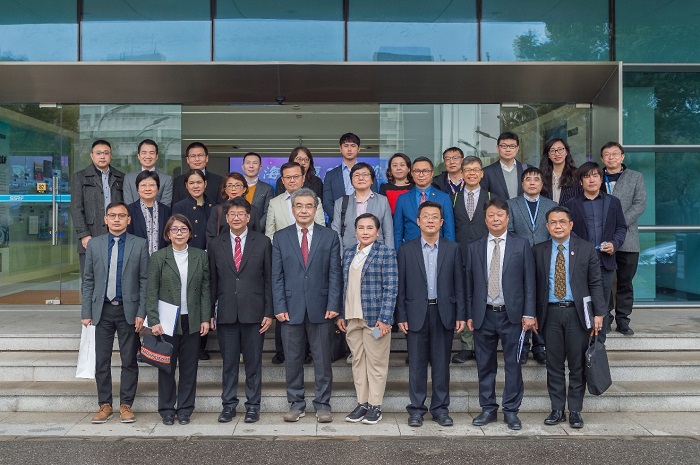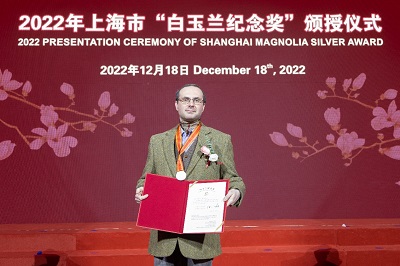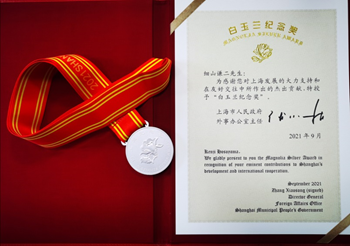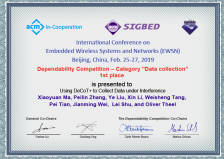On December 18, 2022, the Shanghai "Magnolia Silver Award" ceremony was held in Shanghai. Prof. Alessandro Sepe, Chief Scientist of the Big Data Science Center (BDSC) at the Shanghai Synchrotron Radiation Facility (SSRF), was awarded this award for his outstanding contributions supporting the construction of major national science and technology infrastructures, promoting Shanghai's urban economy and social development, and promoting foreign exchanges and cooperation.
On December 18, 2022, the Shanghai "Magnolia Silver Award" ceremony was held in Shanghai. Prof. Alessandro Sepe, Chief Scientist of the Big Data Science Center (BDSC) at the Shanghai Synchrotron Radiation Facility (SSRF), was awarded this award for his outstanding contributions supporting the construction of major national science and technology infrastructures, promoting Shanghai's urban economy and social development, and promoting foreign exchanges and cooperation.
Prof. Sepe's main research direction is synchrotron Big Data science, and he has joined the SSRF full-time as the chief scientist of the BDSC since March 2018, where he led his team carrying out a series of innovative research and development works culminating in the architecting, design and deployment of the BDSC at the SSRF, while making a number of core technological breakthroughs in the design and development of scientific computing infrastructures, and in the research and development of automatic data processing pipelines. This architecture provides a unified Big Data management and processing framework for the SSRF, supporting multiple running beamlines, while capable of supporting the new additional beamlines part of the SSRF Upgrade Project.In 2020, in the early stage of the new coronavirus (COVID-19) epidemic, the BDSC fully guaranteed the emergency opening of the Crystallography beamline at the SSRF, supporting the domestic users in obtaining, for the first time, the structural properties of a number of key proteins of the new coronavirus, fully supporting, at the most difficult moment, the principle of "fighting the epidemic and resuming work and production", while strongly supporting drug screening and research and development, as well as vaccine research and development and other related research projects. Moreover, subsequent research carried out on the new coronavirus at the Crystallography beamline at the SSRF has largely benefited from the support of the BDSC.Furthermore, Prof. Sepe has actively used his overseas research network to promote SSRF's foreign exchanges and cooperation. He has participated in many top international academic conferences in the field of scientific Artificial Intelligence (AI) applied to large scientific installations, where he gave invited reports, which improved the international visibility of the SSRF. Prof. Sepe’s outstanding work has been reported by Italian TV academic channels and newspapers, which aroused great interest in the international community to build Shanghai into a science and technology innovation center with global influence. Moreover, Prof. Sepe has actively led and promoted strong and robust domestic cooperation, sharing his achievements on synchrotron Big Data science with the other domestic light source large scientific facilities in China. Furthermore, as an international expert, Prof. Sepe guides and trains a number of graduate students of the ShanghaiTech University, while cultivating young scholars.
On July 2018, at the SSRF, Prof. Alessandro Sepe and Prof. Sir Tony Hey, Chief Data Scientist at the UK Science and Technology Facilities Council (STFC), UK Research and Innovation (UKRI), worked on a memorandum of cooperation.
On October 2018, at the ShanghaiTech University, the first national symposium on Big scientific Data at Large Scientific Facilities was held with the participation of the SSRF Shanghai Advanced Research Institute, CAS, ShanghaiTech University, , Institute of High Energy Physics, CAS, and the China Spallation Neutron Source.
On November 2019, the international conference “Artificial Intelligence Applied to Photon and Neutron Science” hosted by the European Synchrotron Radiation Facility (ESRF) at Grenoble, France was held. Prof. Sepe was invited to give a lecture on the BDSC at the SSRF, as The First Superfacility Platform in China.
Established by the Shanghai Municipal Government in 1989 and named after the city flower of Shanghai, the magnolia, the Magnolia Silver Award is awarded annually to thank outstanding expatriates in recognition of their positive contributions to Shanghai's foreign exchanges and urban development. This year, 50 outstanding expatriates from 13 countries, including the United States, Germany, France, Italy, Australia and Japan, received the award.
